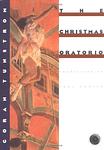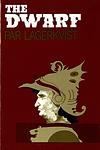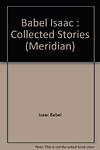The Greatest Russian, Swedish "Fiction" Books Since 1900
Click to learn how this list is calculated.
This list represents a comprehensive and trusted collection of the greatest books. Developed through a specialized algorithm, it brings together 284 'best of' book lists to form a definitive guide to the world's most acclaimed books. For those interested in how these books are chosen, additional details can be found on the rankings page.
Genres
Countries
Date Range
Reading Statistics
Click the button below to see how many of these books you've read!
Download
If you're interested in downloading this list as a CSV file for use in a spreadsheet application, you can easily do so by clicking the button below. Please note that to ensure a manageable file size and faster download, the CSV will include details for only the first 500 books.
Download-
1. The Master and Margarita by Mikhail Bulgakov
This novel is a complex narrative that weaves together three distinct yet intertwined stories. The first story is set in 1930s Moscow and follows the devil and his entourage as they wreak havoc on the city's literary elite. The second story is a historical narrative about Pontius Pilate and his role in the crucifixion of Jesus Christ. The third story is a love story between the titular Master, a writer who has been driven to madness by the criticism of his work, and his devoted lover, Margarita. The novel is a satirical critique of Soviet society, particularly the literary establishment, and its treatment of artists. It also explores themes of love, sacrifice, and the nature of good and evil.
-
2. The Stories of Anton Chekhov by Anton Chekhov
This collection of short stories explores the complexities of human nature and society in 19th-century Russia. Written by a renowned Russian author, the stories range from humorous to tragic, often focusing on the everyday lives and struggles of ordinary people. The author's keen observation and deep understanding of human nature shine through in these tales, making them timeless classics that continue to resonate with readers today.
-
3. Doctor Zhivago by Boris Pasternak
Set against the tumultuous backdrop of the Russian Revolution, the book follows the life of a physician and poet, Yuri Zhivago, as he navigates the political and social upheaval of the early 20th century. Torn between his love for two women, his wife Tonya and his passionate mistress Lara, Zhivago's personal struggles mirror the larger societal changes occurring around him. The novel explores themes of love, war, and the human spirit, offering a poignant and complex portrait of life during a time of revolutionary change.
-
4. One Day in the Life of Ivan Denisovich by Aleksandr Solzhenitsyn
This novel provides a detailed account of a single day in the life of a prisoner, Ivan Denisovich, in a Soviet labor camp in the 1950s. The narrative follows Ivan as he navigates the harsh realities of his daily routine, from the moment he wakes up to when he goes to bed. The book provides a stark portrayal of the brutality and inhumanity of the Soviet gulag system while also highlighting the resilience and dignity of the human spirit under such oppressive conditions.
-
5. Pippi Longstocking by Astrid Lindgren
The book tells the story of Pippi Longstocking, a young girl with superhuman strength who lives alone in a colorful house in a small Swedish village. With her pet monkey and horse, Pippi embarks on a series of humorous and often absurd adventures, defying societal norms and adult authority with her unconventional wisdom and moral code. Despite her wild antics, Pippi's kindness, generosity, and courage make her a beloved figure in her community.
-
6. We by Yevgeny Zamyatin
In this dystopian novel, the story is set in the future, where the protagonist, a mathematician, lives in a highly regulated society where citizens are known by numbers, not names, and every action is dictated by the state. Individuality and freedom are suppressed, and even the concept of love is replaced by regulated sexual liaisons. The mathematician begins to question the infallibility of the state after meeting a rebellious woman, leading to a series of events that challenge the very foundations of his world.
-
7. Life and Fate by Vasily Grossman
"Life and Fate" is a sweeping epic that explores the human condition during the Siege of Stalingrad in World War II. The novel delves into the lives of a wide range of characters, from soldiers and scientists to children and victims of the Holocaust, providing a stark and unflinching portrayal of the horrors of war, the brutality of totalitarianism, and the resilience of the human spirit. At the same time, it also examines themes of love, loss, and the struggle for freedom and dignity in the face of overwhelming adversity.
-
8. The Cherry Orchard by Anton Chekhov
"The Cherry Orchard" is a classic play about an aristocratic Russian woman and her family as they return to their family estate, which includes a large and well-known cherry orchard. The family is on the brink of financial ruin and the estate is slated to be auctioned off. Despite various attempts to save their beloved home and orchard, they are ultimately unable to prevent the sale. The play is a poignant reflection on the changing social order and the decline of the aristocracy in Russia at the turn of the 20th century.
-
9. Three Sisters by Anton Chekhov
"Three Sisters" is a play that revolves around the lives of three sisters, Olga, Masha, and Irina, who live in a provincial Russian town and yearn for their former life in Moscow. The story explores their relationships, dreams, and disappointments, as well as their interactions with the military officers stationed nearby. The narrative is a poignant exploration of love, loss, and the relentless passage of time, highlighting the human struggle for meaning and happiness.
-
10. And Quiet Flows The Don by Mikhail Sholokhov
"And Quiet Flows The Don" is a sweeping epic set in the early 20th century, following the lives of several characters in the Don River region of Russia. Through the lens of the Melekhov family, the novel explores the impact of war, revolution, and societal changes on both individuals and the community as a whole. With vivid descriptions and rich character development, the book delves into themes of love, loyalty, and the struggle for survival amidst the tumultuous backdrop of historical events.
-
11. Barabbas by Par Lagerkvist
This novel tells the story of Barabbas, the man who was pardoned instead of Jesus Christ, according to the New Testament. After being released, Barabbas grapples with his newfound freedom and the guilt of being spared at the expense of Jesus. As he witnesses the rise of Christianity and the profound impact Jesus' teachings have on those around him, he struggles with his own beliefs and the meaning of his existence. The narrative explores themes of faith, redemption, and the human condition.
-
12. Petersburg by Andrei Bely
"Petersburg" is a symbolist novel set in the heart of Russia during the 1905 Revolution. It follows the story of a young man who is given the task of assassinating his own father, a high-ranking government official, by a radical political group. The narrative is a complex mix of politics, family drama, and philosophical introspection, all set against the backdrop of a city in turmoil. The novel is renowned for its vivid and poetic descriptions of the city itself, making Petersburg as much a character in the story as the people who inhabit it.
-
13. Cancer Ward by Aleksandr Solzhenitsyn
"Cancer Ward" is a poignant novel set in a Soviet cancer hospital in the mid-1950s. It follows the lives and struggles of patients and doctors, exploring their personal histories, relationships, and the political environment of the time. The hospital serves as a metaphor for the oppressive Soviet state, with cancer symbolizing the malignant growth of totalitarianism. The book also explores themes of mortality, the human spirit, and the will to survive.
-
14. Kolyma Stories by Varlam Shalamov
"Kolyma Stories" is a collection of short stories that vividly depict the harrowing experiences of prisoners in the Soviet Gulag during the Stalinist era. Written by Varlam Shalamov, a survivor of the Kolyma labor camps himself, the book offers a raw and unflinching portrayal of the inhumane conditions, extreme suffering, and moral degradation endured by the prisoners. Through his powerful and haunting narratives, Shalamov sheds light on the resilience of the human spirit and the indomitable will to survive amidst unimaginable cruelty.
-
15. The Christmas Oratorio by Göran Tunström
"The Christmas Oratorio" is a poignant story set in a small Swedish town, revolving around a boy who loses his mother and his relationship with his silent, grieving father. The narrative is deeply embedded in music, specifically Bach's Christmas Oratorio, which becomes a source of solace for the boy. The tale is a rich tapestry of love, loss, and the healing power of music, exploring the deep emotional bonds between father and son, and the transformative power of art.
-
16. The Girl with the Dragon Tattoo by Stieg Larsson
A disgraced journalist is hired by a wealthy industrialist to solve a forty-year-old mystery involving the disappearance of his niece. He is assisted in his investigation by a brilliant but deeply troubled hacker. As they delve deeper into the mystery, they uncover a twisted web of family secrets, corruption, and murder. The story is a dark and gripping exploration of Swedish society, as well as a thrilling mystery.
-
17. Red Cavalry by Isaac Babel
The book is a collection of short stories that delve into the experiences of a Jewish political commissar serving with the Cossack regiment in the Soviet Red Army during the Polish-Soviet War of 1919-1921. Through a series of vivid, often brutal vignettes, the narrative explores the harsh realities of war, the cultural tensions between the Jewish intellectual and the Cossack soldiers, and the moral ambiguities faced by individuals caught in the turmoil of conflict. The stories are renowned for their stark, powerful prose and their unflinching examination of the human condition amidst the chaos of war.
-
18. The Dwarf by Par Lagerkvist
"The Dwarf" is a dark, philosophical novel set in the Italian Renaissance, narrated by a malevolent court dwarf who serves a prince. The dwarf is a symbol for the darker side of humanity, embodying all the malice, deceit, and manipulation that one can possess. His actions and viewpoint provide a cynical commentary on human nature and the moral complexities of power, war, and love. The novel explores themes of good and evil, faith and doubt, and the destructive side of human nature.
-
19. Moscow Petushki by Venedikt Yerofeev
The book is a surreal and satirical narrative that takes the reader on a tragicomic journey aboard a suburban train from Moscow to the small town of Petushki. The protagonist, a disillusioned intellectual and alcoholic, engages in philosophical musings and encounters a variety of eccentric characters, each embodying different aspects of Soviet life. As he delves into ruminations on love, suffering, and the search for meaning amidst the absurdities of existence, the journey becomes a metaphor for the human condition and the societal decay of the USSR, blending dark humor with poignant introspection.
-
20. The Gift by Vladimir Nabokov
"The Gift" is a novel that tells the story of Fyodor, a Russian émigré living in Berlin, who is struggling to establish himself as a writer. The book explores his life, love, and the process of writing, along with his relationships with his fellow Russian émigrés. The narrative also delves into Fyodor's admiration for his father, a renowned explorer who mysteriously disappeared on an expedition. The novel is a profound examination of the creative process, the expatriate experience, and the power of art.
-
21. Faceless Killers by Henning Mankell
In this thrilling crime novel, an elderly farmer and his wife are brutally murdered and the only clue is the wife's dying word: "foreign." This sets off a series of events that involves a dedicated detective who must solve the crime while dealing with his own personal problems. The investigation becomes even more complex when the press catches wind of the dying word, sparking a wave of xenophobia in the community. The detective must navigate through the fear and prejudice to find the truth and bring the killers to justice.
-
22. The Collected Stories of Isaac Babel by Isaac Babel
This collection of short stories presents a rich tapestry of narratives exploring the harsh realities of war, the complexities of Jewish life in early 20th century Russia, and the human condition. Written by a renowned Russian author, the stories are known for their vivid imagery, poignant themes, and incisive social commentary. The collection includes famous works like "Red Cavalry", a series of stories based on the author's experiences as a journalist during the Russo-Polish War, and "Odessa Stories", which depicts the vibrant yet often brutal life in the city's Jewish ghetto.
-
23. The Laughing Policeman by Maj Sjöwall, Per Wahlöö
In this gripping crime novel, a mass shooting on a bus in Stockholm leaves eight people dead, including a police officer. Inspector Martin Beck and his team are assigned to solve the case, but as they delve deeper, they uncover a complex web of corruption and deceit within the police force. With time running out, Beck must navigate through a labyrinth of clues and personal vendettas to catch the laughing policeman responsible for this heinous act.
-
24. First Circle by Aleksandr Solzhenitsyn
"First Circle" is a gripping narrative set in a Soviet Union labor camp during the Stalin era, where the prisoners are intellectuals and scientists. The story revolves around these individuals who, despite their grim circumstances, engage in political and philosophical debates, striving to maintain their dignity and humanity. The novel explores themes of morality, corruption, and the human spirit, providing a vivid and harrowing depiction of life under Stalinist rule.
-
25. Pnin by Vladimir Nabokov
The novel is about a Russian émigré, Timofey Pnin, who is a professor at an American college. Pnin struggles with the complexities of life, language, and American culture, while dealing with the traumas of his past in Russia. The book is a series of loosely connected episodes, filled with humor, pathos, and Pnin's endearing confusion. His struggles and triumphs in academia and his search for a home and identity form the crux of the story.
Reading Statistics
Click the button below to see how many of these books you've read!
Download
If you're interested in downloading this list as a CSV file for use in a spreadsheet application, you can easily do so by clicking the button below. Please note that to ensure a manageable file size and faster download, the CSV will include details for only the first 500 books.
Download























